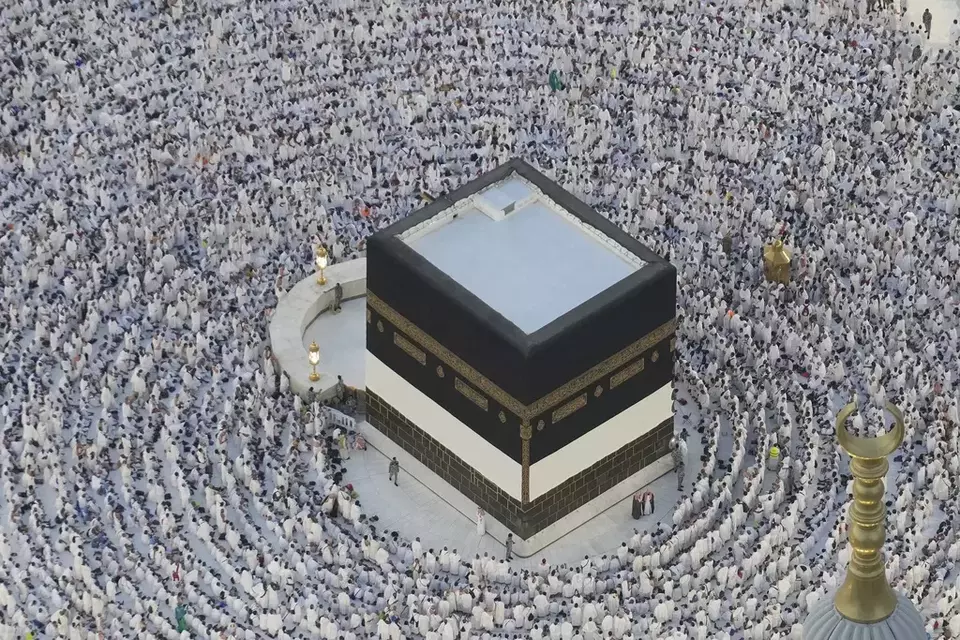Jakarta. All Indonesian Hajj pilgrims have been dispatched to Mount Arafat to carry out their sacred journey on Friday. Starting from 06:00 local time in Saudi Arabia, pilgrims departed in waves from their hotels aboard buses arranged for the journey.
Indonesia, home to the world’s largest Muslim population, sent more than 240,000 Hajj pilgrims this year. With over 5 million Indonesians on the waiting list, the wait can stretch up to 30 years, with the shortest regular wait being around 15 years.
The ritual at Mount Arafat, known as the hill of mercy, marks the pinnacle of the Hajj pilgrimage. Pilgrims converge here, standing shoulder to shoulder, feet to feet, praying to God for mercy, blessings, prosperity, and good health. Located approximately 20 kilometers (12 miles) southeast of Mecca, Mount Arafat is where Prophet Muhammad delivered his final sermon, emphasizing equality and unity among Muslims, 1,435 years ago.
Widi Dwinanda, a Hajj official from the Religious Affairs Ministry Media Center, said that 300 elderly and disabled pilgrims departed from their transit hotel to Arafat at 11:00 local time on June 15.
Meanwhile, sick pilgrims receiving treatment at the Indonesian Hajj Health Clinic (KKHI) departed for Arafat around 10:00 a.m. local time, accompanied by medical staff.
The Hajj pilgrimage, one of Islam’s Five Pillars, officially began when pilgrims moved from Mecca’s Grand Mosque to Mina, a desert plain outside the city. Saudi authorities anticipate the number of pilgrims this year to exceed 2 million, approaching pre-pandemic levels.
In Arafat, Widi noted that Indonesian pilgrims are accommodated in 1,169 tents across 73 camps. Officials in Arafat are ready to receive and guide pilgrims to their designated tents based on their embarkation point and group.
Widi emphasized the necessity for pilgrims to prepare their smart cards with scannable barcodes before boarding buses. Only pilgrims with smart cards issued by the Saudi Arabian government are allowed into Arafat, Muzdalifah, and Mina (Armuzna).
Before departure, he reminded pilgrims to check their belongings for the Arafat, Muzdalifah, and Mina stages, advising against large suitcases or cabin bags that could hinder movement in Armuzna. Pilgrims are instructed to bring only essential items like three days’ worth of clothing, spare ihram for men, towels, toiletries, and personal necessities.
They should also bring prescribed medications, necessary vitamins, and protective gear such as umbrellas, masks, and spray bottles.
During the waiting period at Arafat, Widi recommended regular prayers, recitation of Talbiyah, remembrance of God (zikr), Quran reciting, and supplication. He stressed the importance of maintaining modesty within tents and when using facilities.
The rituals largely commemorate the Quran’s accounts of Prophet Ibrahim, his son Prophet Ismail and Ismail’s mother Hajar — or Abraham and Ismael as they are named in the Bible.
After Saturday’s worship in Arafat, pilgrims will travel a few kilometers (miles) to a site known as Muzdalifa to collect pebbles that they will use in the symbolic stoning of pillars representing the devil back in Mina.
Pilgrims then return to Mina for three days, coinciding with the festive Eid al-Adha holiday, when financially able Muslims around the world slaughter livestock and distribute the meat to poor people. Afterward, they return to Mecca for a final circumambulation, known as Farewell Tawaf.
While in a ritual state, pilgrims must strictly adhere to prohibitions, such as men not wearing sewn clothing and women not covering their faces with veils.
He cautioned against overexertion, particularly climbing Jabal Rahmah or venturing outside tents during wukuf (praying in the plain of Arafat), as it could lead to dehydration and fatigue.
As of Saturday, 112 pilgrims have passed away, including nine at embarkation points, 18 in Medina, 82 in Mecca, and three at airports.


